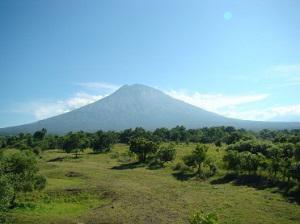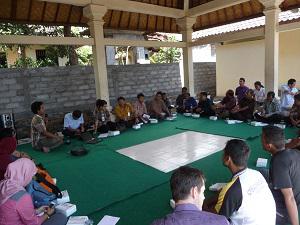Aaron Killgore
This initiative will engage small villages in East Bali to identify existing conservation values, and build on those values through education and outreach to help preserve adjacent government lands and restore the watershed.

The East Bali Watershed Initiative is located within Desa Ban, in North East Bali, Kerangasem Regency. This portion of the watershed covers 7,100Ha and supports around 15,000 people, who live from the peaks of both Mt. Abang and Mt. Agung to about 5km from the coast. These communities were remarkably isolated for centuries, with only a single rugged dirt road and no electricity, clean water, health services nor education until 1998, when development non-profit organizations began to support some of these services. The fifteen years that followed have become a success story for the improvement of literacy, health care, nutrition, dental hygiene, and infrastructure for thousands the villagers. Deep relationships between the community and non-profit organization staff, many of whom come from villages, provide an ideal opportunity to have a transparent dialogue about environmental issues and solutions.

While dramatically improving economic opportunities, the recent infrastructure development is beginning to reveal new environmental challenges. New roads that are necessary to bring crops to market and provide goods and services to villages are accessed by outsiders to illegally log forests and poach birds. Due to their location on the border of government lands, four of the sub-villages (Cegi, Pengalusan, Daya, and Bunga) control much of the access to the remaining forest and are the key to the conservation of the upper watershed. Combining the total areas of private, community and government lands, thousands of hectares have the potential to be preserved and restored, under the guidance of community-organized programs.
This initiative has begun by meeting with village leaders, schoolchildren, non-profit organizations, and management agencies to understand the concerns of each, and solutions that they propose. We will strive to develop projects in the area that support environmental education, vegetatively restore the watershed, and identify community economic proposals that are sustainable.